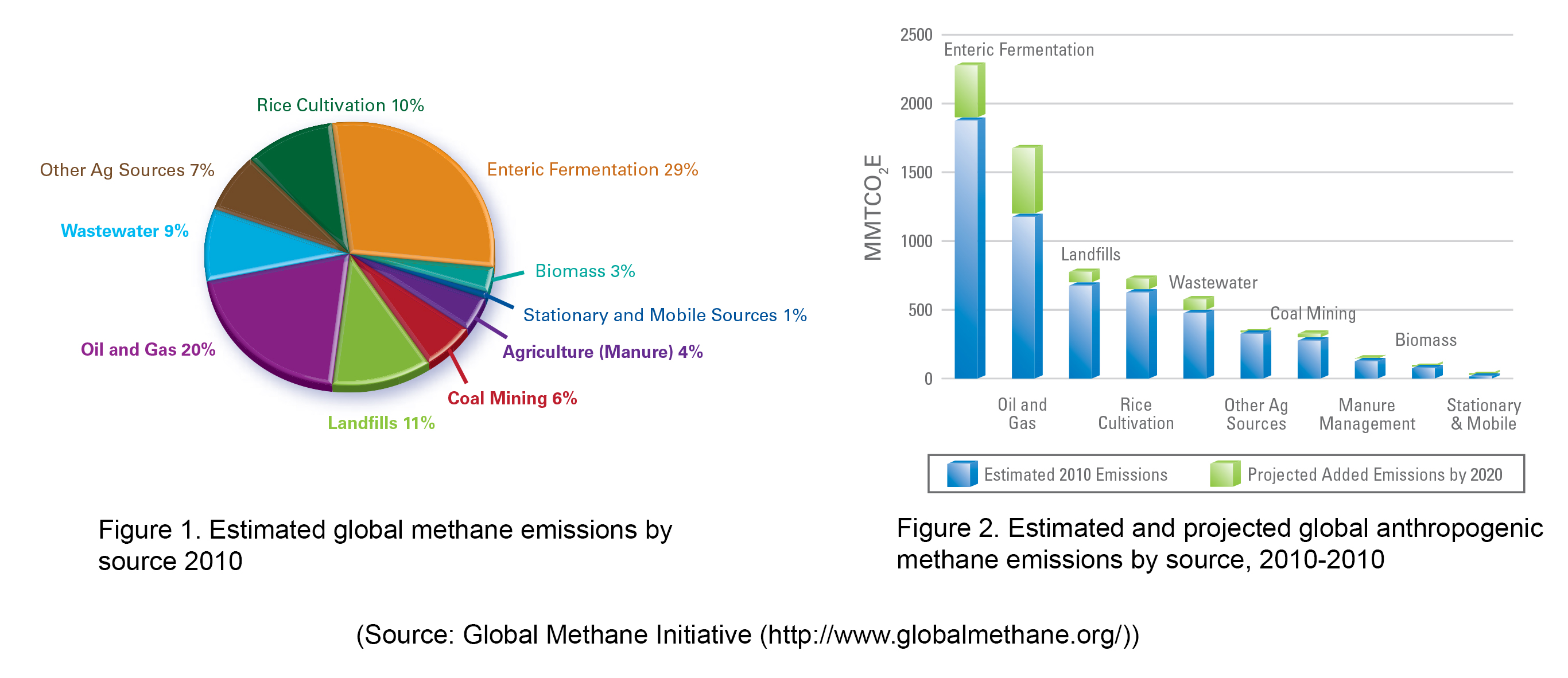Greenhouse Gas Emissions

Methane is a potent Greenhouse Gas and anthropogenic emissions to the atmosphere will contribute to climate change. Worldwide emissions from the waste sector were estimated to account for up to 18% of the global anthropogenic methane emitted in 2004 (Bogner et al., 2008), with landfills accounting for a large proportion of this (IPCC, 2007).
The Climate Change Act 2008 requires the UK to reduce its greenhouse gas emissions by 80% by 2050, and this includes emissions from the waste sector. There are a variety of mitigation measures which can reduce emissions of methane from landfills, including the installation of low permeability caps and the operation of engineered gas recovery and control systems, which primarily reduce the potential for advective methane release. Landfill covers may also be designed to optimise biological methane oxidation using biocover systems.
However, in the UK, gas collection efficiencies can vary between 26 and 74 % at operational landfills, and between 23 and 85 % at closed landfills (Bourn and Browell, 2013), with the uncaptured gas lost to atmosphere.
The University of Southampton’s Methane Emissions Monitoring team can accurately quantify whole-site emissions for landfill gas inventories. They can help identify area hotspots and assess the efficiency of any gas collection system, allowing mitigation measures and improvements to be made.
